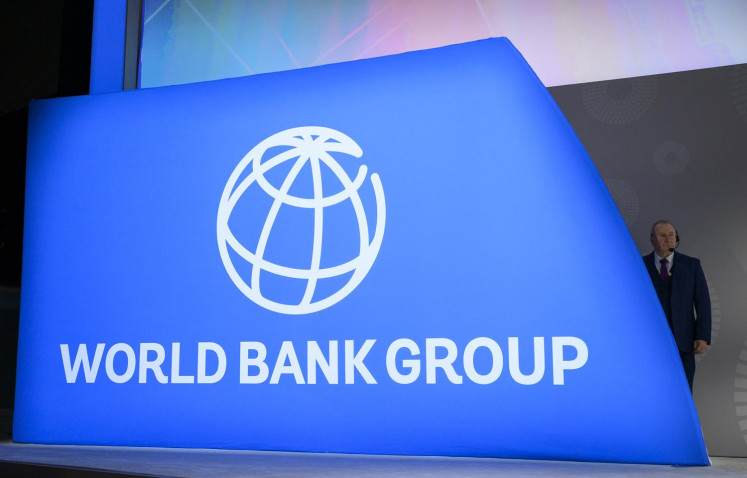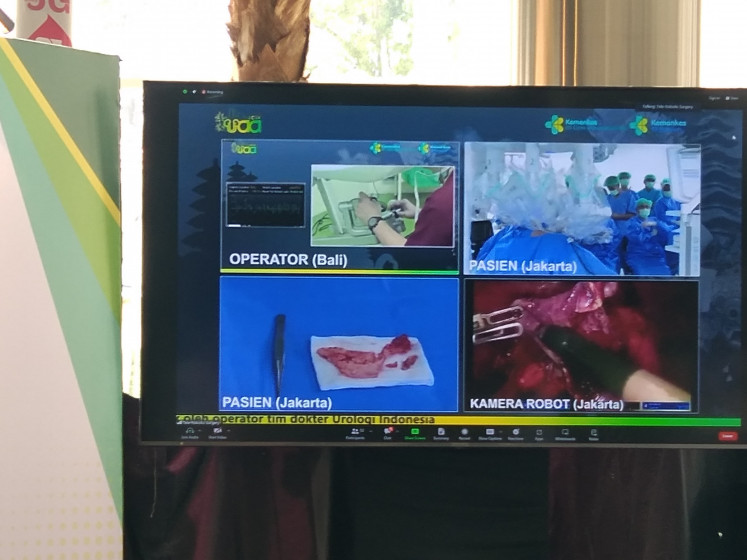Popular Reads
Top Results
Can't find what you're looking for?
View all search resultsPopular Reads
Top Results
Can't find what you're looking for?
View all search resultsIslamic finance must address challenges to thrive: IMF
The Islamic finance system faces several key challenges if it is to unlockits huge potential and develop safely, the International Monetary Fund said onMonday
Change text size
Gift Premium Articles
to Anyone

T
he Islamic finance system faces several key challenges if it is to unlockits huge potential and develop safely, the International Monetary Fund said onMonday.
The ethical-based fast-growing sector, which bans speculation, still lacks regulatory and supervisory frameworks catering to its unique risks, the IMF said in a report.
Islamic finance -- the provision of financial services in accordance with sharia law -- has so far been governed mostly by frameworks developed for conventional finance, it said.
Cross-border operations of Islamic financial institutions have expanded considerably without regulatory harmonization, the IMF said.
"These developments indicate a need for increased regulatory clarity and harmonization, closer cooperation between Islamic and conventional financial standard-setters, and further enhancement of tools for effective supervision," it said.
The industry is still largely nascent, lacking economies of scale and operating in an environment where legal and tax rules, financial infrastructure and access to financial safety nets and central bank liquidity are either absent or do not take its special characteristics into account, the IMF said.
Islamic finance bans interest, products with excessive uncertainty, gambling, short sales and financing prohibited activities considered harmful to society.
The industry is also based on shared profit and loss, which minimizes risk for banks and avoids dealing in debt and derivatives such as foreign exchange forwards and futures, the IMF said.
The sector has doubled in size over the past four years and is now worth more than US$2 trillion as demand for its products rises rapidly.
Around 40 million of the world's 1.6 billion Muslims are clients of the Islamic finance industry, which has surged in popularity since its niche market days of the early 1970s.
But it continues to represent less than two percent of global conventional banking assets of $140 trillion, it said.
Although Islamic regulatory bodies have established standards, different interpretations of religious texts and weak implementation mean they lack harmonization.
The IMF said Islamic finance has the potential to contribute to the global economy, promising to foster greater financial inclusion, especially of large under-served Muslim populations.
Its emphasis on asset-backed financing and risk-sharing mean it could support small and medium-sized businesses, as well as investment in public infrastructure, said the IMF, also noting the importance of Sukuk, or Islamic bonds.
Islamic finance's risk-sharing features and prohibition of speculation suggest that it may, in principle, pose less systemic risk than conventional finance, it said.
It may help promote macroeconomic and financial stability, the IMF said.
The principles of risk-sharing and asset-based financing can help promote better risk management by both financial institutions and their customers, as well as discourage credit booms.
The IMF said the challenges facing Islamic finance may not only be impeding its development, but could also encourage complex practices and products that carry heightened risks.
Also affecting the industry are slow innovation and a scarcity of sharia scholars with financial expertise, the IMF said. (+++++)









